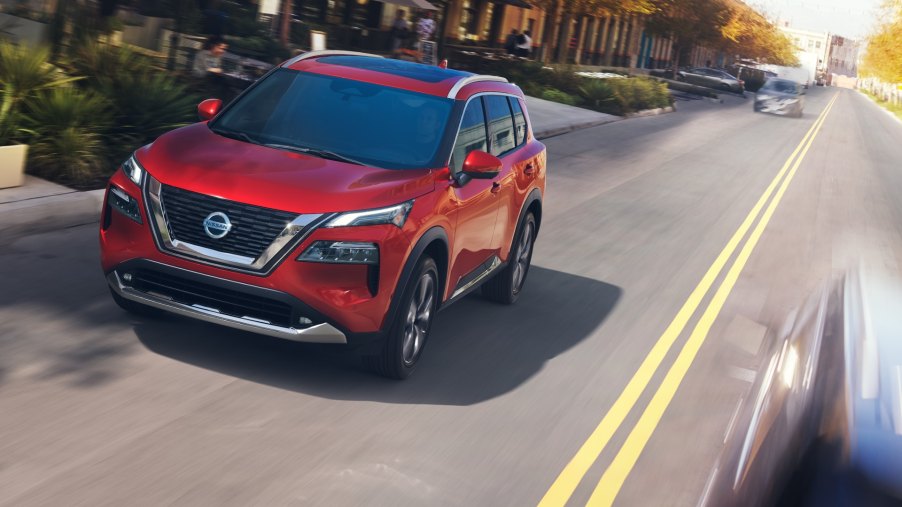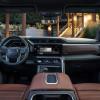
You Need the Nissan Rogue Instead of the Hyundai Tucson
The Hyundai Tucson and Nissan Rogue are two popular SUV options that rival the Toyota RAV4 and Honda CR-V. However, which one of these underdogs is better equipped to take on the champions? Let’s see how the 2020 Hyundai Tucson and 2020 Nissan Rogue compare.
The Hyundai Tucson VS the Nissan Rogue
The 2020 Hyundai Tucson has a starting price of around $23k, but the2020 Nissan Rogue starts a little higher with a base price of about $25k. The Honda CR-V and Toyota RAV4 both start around $25k, too, so the Hyundai Tucson does provide a little savings.

In terms of fuel economy, the Nissan Rogue is a better SUV. It gets up to 26 mph in the city and up t0 33 mpg on the highway. Meanwhile, the Hyundai Tucson only gets up to 23 mph in the city and up to 28 mph on the highway.
Nissan Rogue and Hyundai Tucson Performance
The Hyundai Tucson has two engine options available. The base model has a 2.0-liter four-cylinder engine that offers 161 horsepower and 150 lb-ft of torque. You can upgrade to the 2.4-liter four-cylinder engine for 181 horsepower and 175 lb-ft of torque.

But keep in mind that the Hyundai Tucson can only tow up to 1,000 lb, so don’t push it. Plus, this isn’t the option for a sporty ride. The Hyundai Tucson takes 8.8 seconds to accelerate from 0 to 60 mph.
RELATED READ: Why is the Toyota Hilux Banned in the US?
The 2020 Nissan Rogue comes with a 2.5-liter four-cylinder engine that provides 170 horsepower and 175 lb-ft of torque. It can also only tow up to 1,100 lb, making the Toyota RAV4 look better with its ability to tow up to 3,500 lb. Also, the Nissan Rogue takes 9.8 seconds to reach 60 mph, so it’s not a speedy option either.
Both of these SUVs come with front-wheel-drive, but you can add all-wheel-drive. It’s about $1,600 to add AWD to the Tucson and about $1k to add it to the Rogue. The Nissan Rogue has an intelligent AWD system that automatically adjusts to slippery conditions, making it more suited for off-roading. However, the Hyundai Tucson seems to have a beefier suspension for a more comfortable ride around town.
Hyundai Tucson and Nissan Rogue Features
The Nissan Rogue has more space and interior comfort, with up to 39.3 cubic feet of cargo in the rear and 70.3 cubic feet total. The Hyundai Tucson offers 31.3 cubic feet in the back with up to 61.3 cubic feet of cargo space.

The Hyundai Tucson and Nissan Rogue both have infotainment centers that can connect to Apple CarPlay and Android Auto. However, the Nissan Rogue can also connect to Alexa, Google Assistant, and your smartphone. With the Rogue, you can set customizable alerts, like if someone is driving too fast or past curfew.

The Hyundai Tucson is an IIHS Top Safety pick, but the Nissan Rogue comes with more standard safety features like automatic emergency braking, pedestrian detection, blind-spot warning, and more. It seems like you get more with the Nissan Rogue, including more capabilities, more space, and more tech. The Nissan Rogue feels like the better pick for families, but be sure to test drive both options first.



